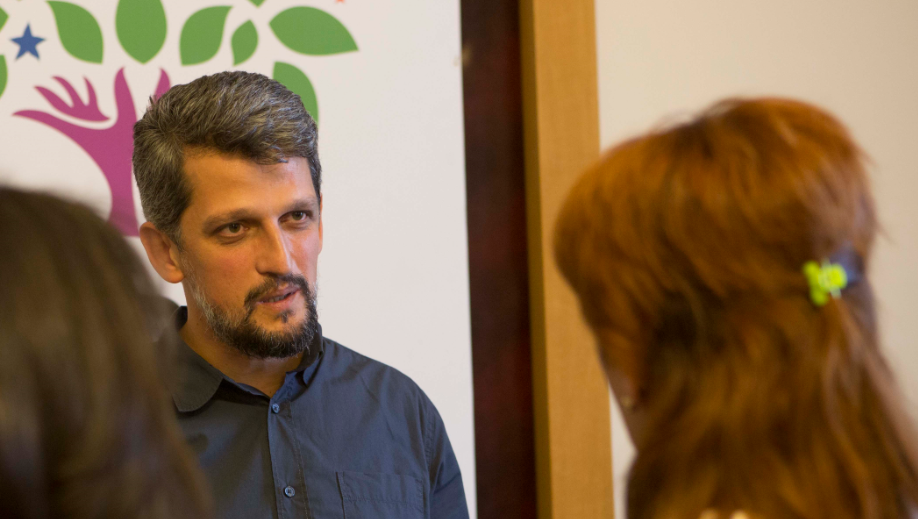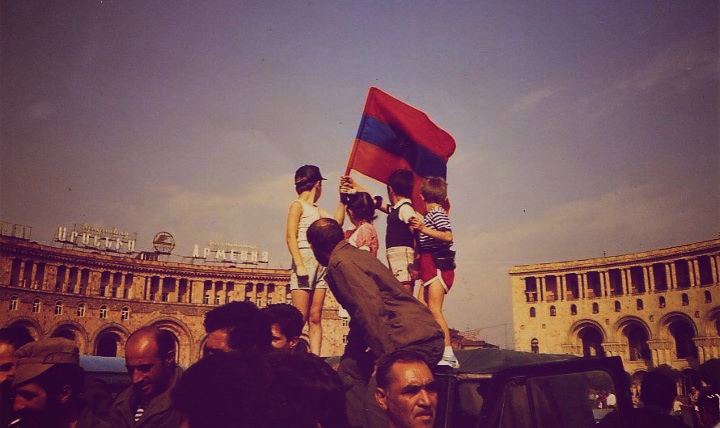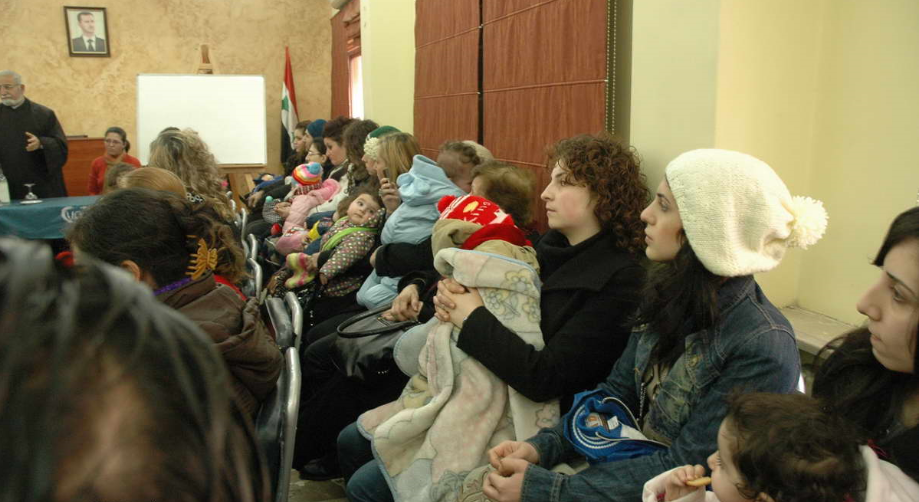Mensoian: Looking Beyond 2015 (Part II)
August 19, 2015Special for the Armenian Weekly
“Part I: Looking Beyond 2015” was an overview of the several changes that must be addressed during the post-Centennial period. The most critical issue was the reformation of Armenia’s dysfunctional market place. It is counter-productive to be concerned with the issues affecting Armenia’s future viability to the exclusion of reforming a system that continually fails to meet the socio-economic needs of its citizens. Although genocide recognition will remain an important issue, the likelihood for a favorable resolution in the near future faces many obstacles that presently seem difficult to overcome.
Kurdish Reconciliation
With respect to the ongoing reconciliation between Kurdish leaders and Armenians inside and outside Turkey, the question is how dependable will their proffered friendship be in the long term? Acknowledging the genocide and their rehabilitation of St. Giragos Armenian Church in Diyarbakir is a modest price to pay to expiate the sins of their forebears who participated in that horrific enterprise of murder and pillage that was the Armenian Genocide. True there were the good Kurds, just as there were the good Turks. However, their collective evil far outweighed the collective good that existed. How will our Kurdish friends respond to the demands for reparations, or does that burden only fall on ethnic Turks? Or is it expected that Ankara will bear the cost of compensation with respect to any and all losses their citizens may have. The sincerity of the Kurdish leaders in this incipient rapprochement may be gauged by their willingness to help identify and facilitate those Islamized Armenians who may want to connect with their past or who may want to receive a Christian Armenian baptism. The election of three Armenians—one on the pro-Kurdish Peoples’ Democratic Party (HDP) ticket—to the Turkish Parliament cannot be disparaged. It is a positive sign. However, their lives as parliamentary members can’t be viewed as being any safer than were the lives of Hrant Dink or Sevag Balikci who were murdered in cold-blood.

‘The election of three Armenians—one on the pro-Kurdish Peoples’ Democratic Party (HDP) ticket—to the Turkish Parliament cannot be disparaged.’ MP Garo Paylan at the HDP Parliamentary office (Photo: Rupen Janbazian)
Kurdish gains during the last election where the party received more than 10 percent of the votes cast is a major distraction for President Erdogan. Kurdish political gains coupled with their ability to carry on military operations suggests the reason for Turkey aiding the United States in the air war against ISIS. Taking advantage of the situation, Turkish aircraft also bombed PKK positions in northern Iraq and southeastern Turkey. It was a two-for-one proposition. We may well see in the coming months Turkish efforts to neutralize the recent rise of Kurdish influence if it interferes with Erdogan’s domestic agenda or his more ambitious plans for a resurgent Turkey in the international arena. The evolving relations between Kurdish leaders and Ankara will have a significant influence on the incipient rapprochement with Armenians inside and outside of Turkey.
Although genocide recognition will remain an important issue, the likelihood for a favorable resolution in the near future faces many obstacles that presently seem difficult to overcome.
Artsakh
Artsakh represents our first political victory since the genocide. However, its independence has yet to be achieved. The expressions of friendship by the Western democracies (the European Union and the United States) for Armenia and Artsakh ring hollow when we consider their willingness to continually overlook Azerbaijan’s blatant violations along the Line of Contact and President Aliyev’s constant threats to use military force against the Artsakh Armenians. In any number of articles I have called attention to the fact that the principles that the European Union and the United States have supported that set the parameters for the negotiations do not allow for Artsakh to retain control of the occupied lands (our liberated territories), nor does it provide for Artsakh’s ultimate independence. One has to question what a peaceful solution of the conflict means. Unless there is a seismic shift in attitude by the United States and the European Union a “peaceful solution” means that our brothers and sisters can expect to remain in Nagorno-Karabagh (Artsakh) with limited local autonomy under Azeri jurisdiction. Shorn of its liberated territories, which are vital to its economic survival and defense (as well as Armenia’s), it would take no more than 20 or so years for the Azeris to depopulate Karabagh of Armenians just as they did in northern Shahumian and Nakhichevan. Yet, this September President Sarkisian is required to go through the charade of meeting with his Azeri counterpart in New York to seek a peaceful solution to the Artsakh issue. Obviously our president cannot refuse, but as long as he can depend on President Aliyev’s intransigence the de facto independence of Artsakh will continue. Given that outcome, the negotiations must be considered a success of sorts.
Obviously we do not want to escalate tensions along the border more than is necessary to effectively respond to Azeri aggression. Since our only benefactor is self-serving Russia to protect its interests in the South Caucasus (and covertly Iran for the same reason) we must “bite our tongue” and maintain the ongoing dialogue demanded by the Minsk Group co-chairs (France, Russia, and the United States) monitoring the situation. Our response to counter Azerbaijan’s reckless behavior is to continue developing Artsakh’s economy, accelerate the expansion of settlements in the liberated territories, publicize the country as a tourist destination, and most important tell Artsakh’s story to a world audience.
The Syrian-Armenian Crisis
With respect to the plight of the Armenians in Syria, besides the obvious need to provide immediate and sufficient assistance, saner heads must prevail when considering the future prospects for maintaining communities that pre-date the genocide. There is no reasonable expectation that the conflict that has decimated Syria will end anytime soon. And, when it does run its course there can be no assurance as to which group ends up controlling the government, its composition, and its stability. Of greater importance is the security of the Armenian communities in the new political order. Nothing can be known for certain at this time, but the future prospects are less than promising. For Armenians to stay in Syria is an option, but leaving Syria is also an option. It doesn’t seem reasonable that Syria will ever return to its pre-conflict days. It is important, for those Armenians who have decided to leave, that Armenia cannot be foreclosed as a first option because of funding issues, the lack of housing, or jobs. This is a priority responsibility of the Armenian government and the Armenian Church. An influx of Syrian Armenians would rejuvenate both Armenia and Artsakh. As an aside, Turkish influence along its border with Syria could adversely impact the future prospects of Armenian communities such as Kessab and Aleppo if and when the conflict ends.
Reforming Armenia’s Dysfunctional Marketplace
Finally we come to the ailing economy of Armenia. When Armenia became independent in 1991, its population was estimated at about 3.5 million. Even with a low net rate of growth (excluding in-migration) the population should have reached about 4 million in 2015. Today slightly less than 3 million people remain in Armenia. This represents a loss of 25 percent of the population that has left permanently or is temporarily working in foreign countries. There is no legitimate reason for this out-migration or for our people to seek work in foreign countries out of necessity. The closed border is not the reason for the economic malaise that is gripping Armenia. If we wish to select one of several obvious reasons, it is the artificial constraints that limit entrepreneurial opportunity that have been imposed by the oligarchs. The country has both the natural and human resources to support some 4 to 5 million people. Unfortunately, the oligarchs do not consider the economic situation to be dire or the decrease in population to be serious. Armenians working in foreign countries decrease the number of unemployed in Armenia and their remittances help to keep the economy above water. With fewer births and younger people out-migrating, our population is aging. An increasing number of older people at or below the poverty level do not represent a viable political opposition and it is a segment of the population that can be easily manipulated if necessary. However, an aging population has its serious drawbacks especially with respect to military capabilities and future economic development.

‘When Armenia became independent in 1991, its population was estimated at about 3.5 million. Even with a low net rate of growth (excluding in-migration) the population should have reached about 4 million in 2015.’
The constraints against entering and operating any business that competes with the interests of the oligarchs result in fewer jobs being created; maintain higher consumer prices; lower the number and quality of the goods and services offered to the consumer; and limit creativity and efficiency in the marketplace. We constantly read of new investments in Armenia and the various initiatives instituted by the government without seeing palpable improvements in the economy or the quality of life. National wealth remains disproportionately distributed and is a principal reason for young Armenians and families to out-migrate in search of a better quality of life.
It is up to those who seek to lead us in the post-2015 period to consider new strategies, and put petty differences and personal ambitions aside if we expect to succeed. Political parties, diasporan organizations, and wealthy benefactors must use their combined influence to effect changes in the operation of the market place in Armenia that will stop the hemorrhaging of population to out-migration and job-seeking in foreign countries. The church must also lend its support for market place reform as well. It should not consider itself above responding to the socioeconomic needs of its people. It is irrational to believe that we can successfully confront Turkey, promote Artsakh’s independence, expand relations with Kurdish leaders, and help our Syrian Armenians if Armenia cannot put its economic house in order.
The post Mensoian: Looking Beyond 2015 (Part II) appeared first on Armenian Weekly.
Source: Armenian Weekly
Link: Mensoian: Looking Beyond 2015 (Part II)
